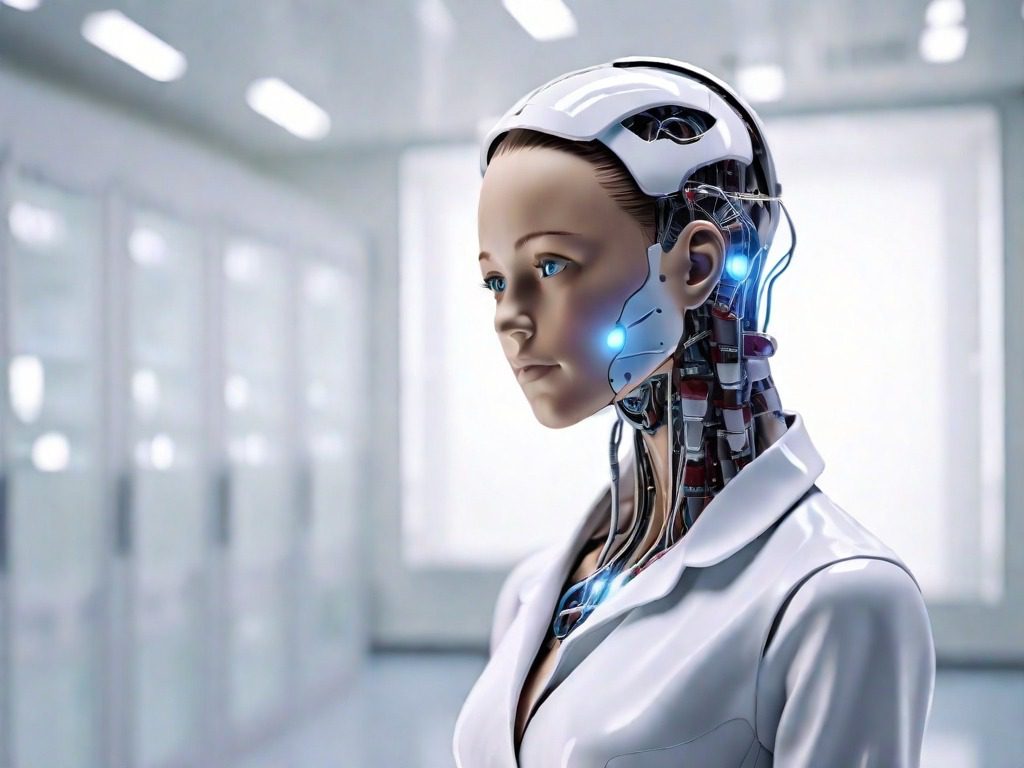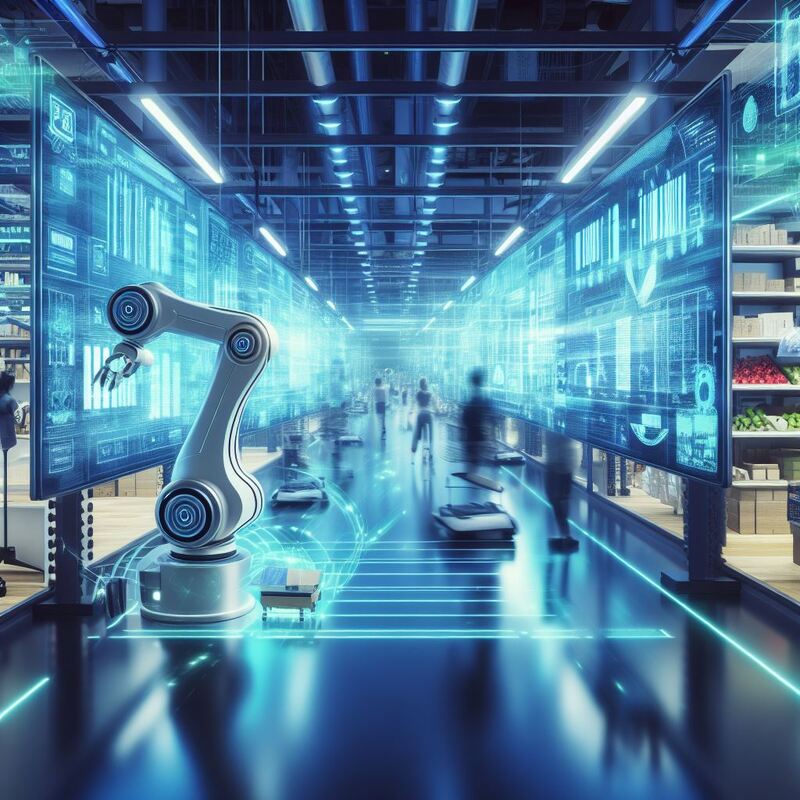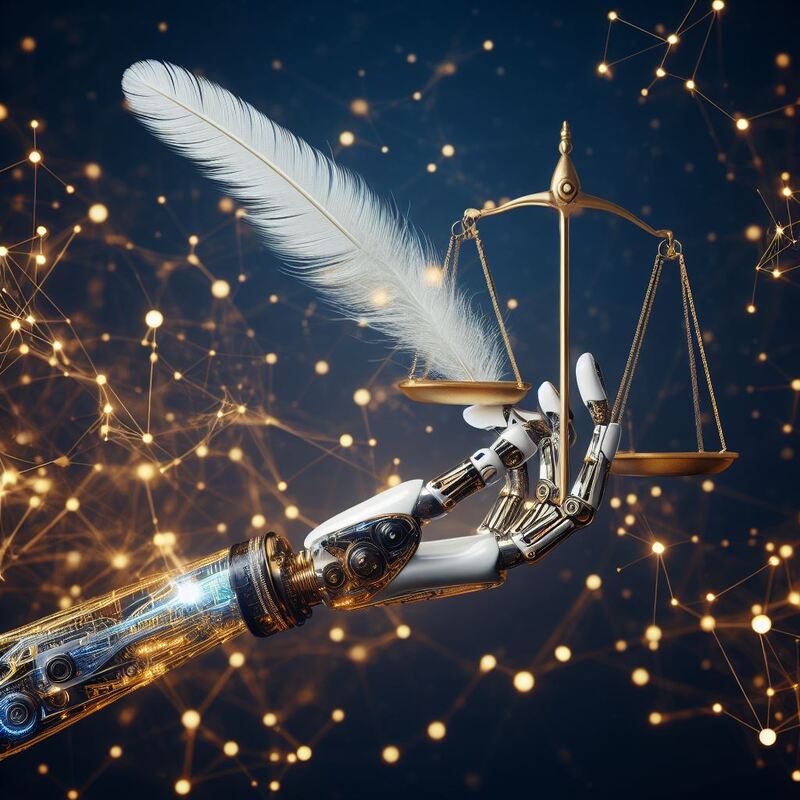Buckle up, buttercup, because I’m about to whisk you off on a fantastic voyage through the jaw-droppingly extraordinary world of AI in healthcare. We’ll start by time-traveling to its humble beginnings, gawk at its present-day magic, and then guess what the future might hold. We’ll witness the magic of AI’s crystal-ball-like predictive analysis and the VIP treatment of personalized care. But hold onto your hats – it’s not all unicorn doctors and rainbow stethoscopes. We’ve got some pretty hefty hurdles to hop over. Are you ready to dive headfirst into this whirlwind of a paradigm shift? Jump in, and let’s unravel the mystery of AI in healthcare together – just like Sherlock and Watson, but with fewer deerstalker hats and more stethoscopes.
Historical Overview of AI in Healthcare
Let me tell you my story. I’ve been around the block and seen the rise of AI in various sectors. But its journey in healthcare? Now, that’s a fascinating tale that would put any sci-fi movie to shame. Picture this: AI’s inception was like a newborn with limitless potential, gurgling, and drooling, waiting for the right moment to jazz things up.
Over time, that baby grew like Jack’s beanstalk, reaching heights that would make any momma proud. And the milestones? Hold on to your hats, folks, ’cause it’s like watching a marathon of ‘Star Trek’ episodes.
In the early days, we had cute little programs, clumsy but eager, trying their best to mimic our problem-solving. It’s sort of like a toddler trying to tie their shoelaces – adorable and exasperating at the same time. Then came sophisticated algorithms, all grown up, capable of learning and predicting. They were like angsty teenagers, suddenly having all these ‘feelings’ and ‘insights.’
And now, we’re in an era where AI has reached its prime. It can analyze data like a detective on steroids, diagnose diseases like a seasoned doctor, and suggest treatment plans like a caring nurse. Who needs Sherlock Holmes when you’ve got AI?
Current Applications of AI
Clear the stage because it’s time to dive headfirst into the magical realm of healthcare, where AI is doing more than just running the show. Who needs a stethoscope when you’ve got a supercomputer, right?
Let’s start with AI Diagnostics. It’s like the superhero of disease detection – faster than a speeding bullet, more accurate than a GPS, and less invasive than your mother-in-law’s questions at the dinner table. These smarty-pants machine learning algorithms can analyze imaging data and spot abnormalities that would make a human eye cross-eyed. They’re like the Sherlock Holmes of the medical world, aiding our good doctors in early detection and treatment.
Then we’ve got the Telemedicine Evolution, powered by none other than our friend, AI. It’s like having a 24/7 doctor in your pocket (minus the cold hands). These AI-powered telehealth platforms can assess your symptoms, provide a preliminary diagnosis, and direct you to the appropriate care while lounging in your pajamas. They’re the ultimate time-savers, reducing those dreadful hospital visits and enhancing your comfort – and let’s be honest, who doesn’t love comfort?
AI’s Role in Predictive Analysis
In this wild world of healthcare, besides playing doctor and diagnosing my current sniffles or sprains, AI has another rabbit in the hat – it’s like a fortune teller for my health. Here’s the magic trick:
1. AI, with its complex algorithms (honestly, more complicated than my relationship status), rummages through my medical history and lifestyle data like a nosy neighbor, predicting any health troubles that might sneak up on me.
2. It’s like a meteorologist for diseases! AI can foresee how a sickness might progress, helping my doctor tailor-make my treatment plan like a bespoke suit.
3. Like a pushy personal trainer, AI’s data-driven insights encourage preventive healthcare, giving me that little nudge towards swapping my potato chips for a salad.
But, this fortune-telling feature has its fair share of ‘handle with care’ labels. Serious issues like Data Privacy and Ethical Considerations are more significant headaches than my last hangover. It’s punchline-free and crucial to ensure that AI systems treat my privacy rights and sensitive health data like in China. Plus, the algorithms should be as transparent and unbiased as my mom’s love for me. Remember, while AI’s predictive prowess can shake up healthcare like a good martini, it’s also a potential Pandora’s box, and we need to step around it gingerly.
Personalized Care Through AI
Step right up, ladies and gents, because with the magic of AI, my healthcare is about to become a showstopper tailored to fit my oh-so-unique lifestyle, like a sequined jacket at a rock concert. This whiz-kid AI can sift through health data like a kid in a candy store, leading to diagnoses that are sharper than a needle and treatment plans as personalized as your grandma’s knitted sweater.
Genomic tailoring? It’s like a bespoke suit for your genes, hand-stitched therapies to match my unique genetic makeup. But hold onto your hats, folks, because this marvel of technology isn’t without its challenges. We’re tap-dancing on a tightrope when it comes to AI ethics.
It’s vital to ensure my data is handled as delicately as a porcelain doll and my privacy is maintained as securely as a bank vault. Remember, I have the right to know how my information is used, like a backstage pass to the data usage show. AI in healthcare isn’t just about efficiency; it’s about building trust, a bond stronger than superglue, and safeguarding my rights while delivering a star-studded, highly personalized healthcare experience.
Future Implications and Challenges
Peering into the crystal ball, I see that welcoming AI into the healthcare family is not just a walk in the park or a romp through a field of daisies. We’re talking about a roller coaster ride filled with thrilling challenges and implications that we must buckle up and confront.
1. Ethical Pickles: AI’s new hobby of processing personal health data makes us scratch our heads about privacy and consent. It’s like a nosy neighbor who knows too much. So, how do we ensure our chatty AI friends learn manners and respect patient confidentiality?
2. Implementation Speed Bumps: Sliding AI into our existing healthcare systems isn’t as smooth as buttering toast. It’s more like trying to squeeze an elephant into a Mini Cooper. It demands oodles of resources, training, and time. So, what ingenious strategies can we whip up to make this transition smoother than a jazz tune?
3. Accountability: If an AI system bungles up, who will stand in the naughty corner? Who gets the blame, the AI or the human who programmed it?
These challenges might seem like juggling flaming torches while riding a unicycle, but they’re not impossible to overcome. They need a hearty dose of thoughtfulness. So, keep your thinking caps on and your sense of humor handy as we dive headfirst into this exciting new world of healthcare!
Frequently Asked Questions
What Are the Potential Ethical Concerns Surrounding the Use of AI in Healthcare?
Ever get that nagging feeling that your AI doctor might be giving you the side-eye? I do. The funny thing about AI is that it sometimes shows unintentional bias in diagnosing and treating patients. Let’s be honest; even my Roomba favors the living room over the kitchen.
And I need to get started on data privacy. My data is more exposed than a sunbather at a nudist beach. Makes you wonder, right? Just how secure is our information? I can’t even keep track of my house keys, let alone my medical records.
How Does AI Integrate With Existing Healthcare Systems and Technologies?
Let me tell you, my friends, how AI cozies up with our existing healthcare systems. It’s like Sherlock Holmes on steroids, sifting through mountains of data to diagnose and treat health issues. But, oh boy, integrating AI isn’t a walk in the park! It’s like trying to teach a grandma to use an iPhone – we’re talking about some serious challenges. And let’s wait to get started on data privacy issues. It’s like trying to keep your nosy neighbor from peeking into your yard, calling for rock-solid protocols, and, of course, some beefy cybersecurity measures!
What Is the Learning Curve for Healthcare Professionals to Effectively Use AI Technologies?
Well, the learning curve for us healthcare professionals trying to get a grip on AI technologies is a bit like trying to ride a unicycle on a tightrope–it varies! It boils down to how well you and technology get along. Are you best pals, or do you still give the stink eye to your toaster? But don’t worry, with some solid AI training, you’ll navigate these technologies like a pro, maybe even faster than you can find the heartbeat in a stethoscope!
How Does AI in Healthcare Impact the Cost of Medical Services for Patients?
So here’s the scoop on how good ol’ AI impacts healthcare costs, right from the horse’s mouth. Now, it’s a double-edged sword. On one hand, it’s like a super-efficient, tech-savvy assistant, streamlining processes and making things more affordable. That’s a win. But hold your horses; conversely, it could stir up a real hornet’s nest with insurance implications. My crystal ball tells me we’re in for a shift in how medical bills are calculated and covered. So, buckle up, folks! It’s going to be a heck of a ride!
Can AI Replace Human Healthcare Professionals in CertAIn Roles or Duties?
Oh boy, absolutely! AI can indeed take over specific roles, but hold on, don’t panic, it’s not about job loss, it’s about job evolution. While AI is getting crazy accurate and improving efficiency (you should see its high score on Candy Crush), it’s yet to master the art of a comforting pat on the back or a warm smile. So, we still need our fantastic healthcare professionals for that human touch and interpretation. Because let’s be honest, you’d rather have a human than a robot discussing your X-ray results, wouldn’t you?
Conclusion
Well, let me paint a picture for you. I’m in the middle of a revolution led by AI in healthcare. It’s shaking things up, turning predictive analysis into a game of Tic Tac Toe, and making personalized care as easy as ordering pizza. It’s not just about pimping up the tech side of things; it’s about creating a healthcare system that works better than my old, surprisingly reliable, 90s car.
Of course, like with anything new, there are speed bumps ahead. Does anyone remember the first time they tried to assemble IKEA furniture? But, the potential benefits are like finding a parking spot right in front of the entrance at a busy mall – they far outweigh these little hiccups.
AI is not just the future of healthcare; it’s the buzzing, whirring, beeping present. So, it’s high time I buckle up and embrace this paradigm shift. After all, we’re talking about my health here, not just my inability to resist a good donut!




